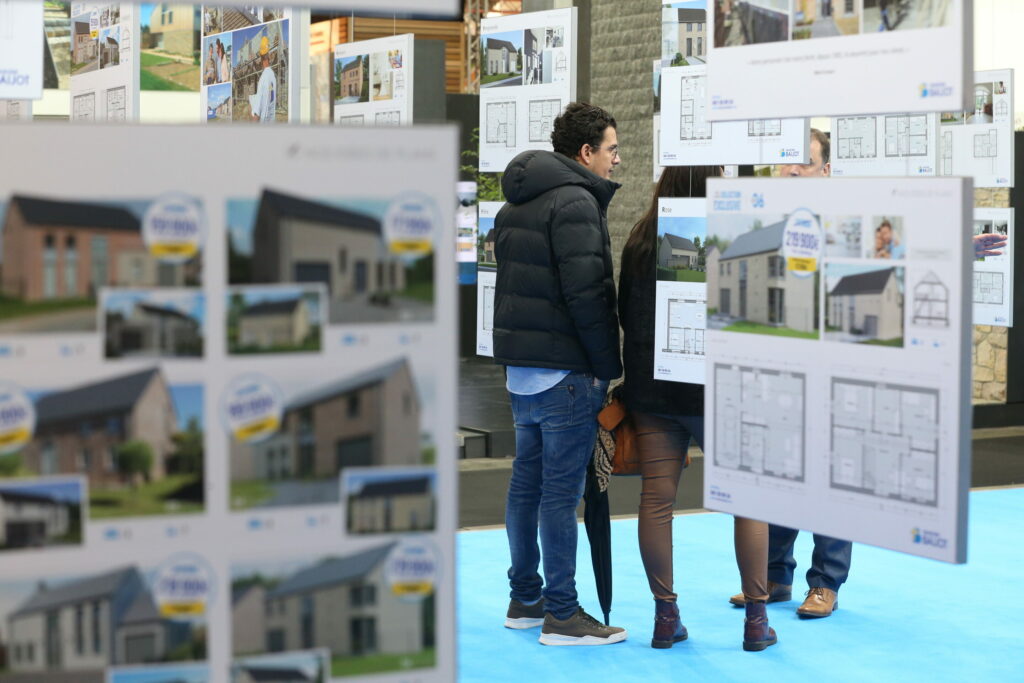People in Belgium have a so-called "brick in their stomach", referring to a commonly shared aspiration to own or build their own house someday. However, this goal is becoming a pipe dream for the younger generation.
2022 saw a notable rise in young people aged 18 to 30 buying property as the increased cost of living fuelled by high energy and food prices resulted in the housing market cooling. But the situation has now turned: never in the past 15 years has it been as difficult for people in their twenties and thirties to buy their first house or flat.
Potential buyers in this age group are under the highest financial pressure since 2008, Het Laatste Nieuws reported based on figures from credit intermediary Immotheker Finotheker. "Primarily people born after 1985 are affected by a growing housing crisis," said John Romain, Immotheker Finotheker CEO.
The company looked at the ratio of income to the mortgage down payment. Housing is considered "affordable" if for every €100 people earn they pay off €30 in rent or loans. But if rent or loan repayments exceed 30% of a person's salary, they are considered to be under financial pressure. Homeowners under the age of 25 spent an average of 34.3% of their income paying off their mortgage loans in 2023 – the highest "payment pressure" since the financial crisis in 2008.
For homeowners aged 26–30, the situation is even worse, with the highest payment pressure in over 20 years. Despite average earnings being higher than for homeowners in their early 20s, they still pay an average of 34% of their income on their mortgage. Finally, homeowners in their 30s spend around 32% of their income repaying their mortgage – also the highest debt burden in 15 years.
Stuck in an increasingly expensive market
This situation is partly the result of high interest rates. The European Central Bank (ECB) raised interest rates to record-high levels in July 2023. But it is also a result of property prices rising more than the wages of young people in Belgium.
The net income of an average 25-year-old buyer rose from around €2,800 (per month) ten years ago to €3,500 in 2023 (+25%). But the average price of a first home bought by this age group has gone up 38% over the same period. For people between 25 and 30, income rose by 25% but the cost of their first home increased by 33%.
Aside from facing struggling to pay off mortgages, young people in Belgium also have to cough up more to buy a property in the first place. 11 years ago, the average person in their 20s could buy their first home with €45,000 in savings. Buyers in this age group today need €88,000. "Most young people who can put this amount of money on the table receive support from parents or grandparents," said Romain.
The fact that the property market has become unattainable for young people is reflected in the average buying age. In 2007, the average first-time buyer was 31; this has risen to 37.
Related News
- Brussels-Midi station: 18-storey tower for affordable housing on its way
- At least 400,000 homeless minors in the EU, associations say
- Increasingly unaffordable Belgian property market pushes up rent prices
As home ownership becomes a greater challenge, the rental market also becomes more crowded, in turn driving up rental prices. Supply is squeezed as renters stay in a property for longer, on average.
Property experts have warned of an "imminent housing crisis" which is also affecting the middle class. In May, the Belgian real estate and construction sectors, the private rental market and the social housing sector sounded the alarm that the housing situation was going in the wrong direction. They warned of an acute housing pinch within two to three years which will make affordable housing almost unattainable.

